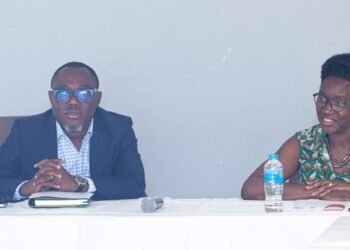Gambian President Adama Barrow’s party won a narrow victory in legislative elections but fell short of the majority needed to govern the West African country alone, results showed Sunday.
Barrow’s National People’s Party won 19 of the 53 parliamentary seats up for grabs, overturning the main opposition United Democratic Party’s majority, according to results published by The Gambia’s independent electoral commission.
The president can designate the five other lawmakers, including parliament’s speaker, who will be selected from his party in the coming days, but fell short of an absolute majority in the 58-seat chamber.
The UDP claimed 15 seats and independents arrived in third place with 11.
Barrow won a second term in office after defeating Ousainou Darboe in last year’s presidential election with 53 percent of the vote, in the country’s first open transition of power since the dictatorship of Yahya Jammeh.
His unexpected victory in the 2017 presidential election ended more than two decades of rule under Jammeh marred by state atrocities.
Unlike the December 2021 poll, turnout at the legislative elections was low, according to local media. The electoral commission has not provided a national figure.
The new parliament is due to be sworn in on Thursday.
Barrow, 57, faces numerous challenges, including soaring inflation, shortages, national reconciliation and fighting corruption.
He promised to introduce constitutional change by the end of his term, but in September 2020 the outgoing parliament rejected a draft constitution limiting the president to two terms.
Barrow has also been urged to respond to recommendations from a commission that investigated crimes committed by the state under the Jammeh regime.
An English-speaking enclave of two million people surrounded by Senegal that is continental Africa’s smallest country, The Gambia is among the world’s 20 least developed states, according to the United Nations.






























































